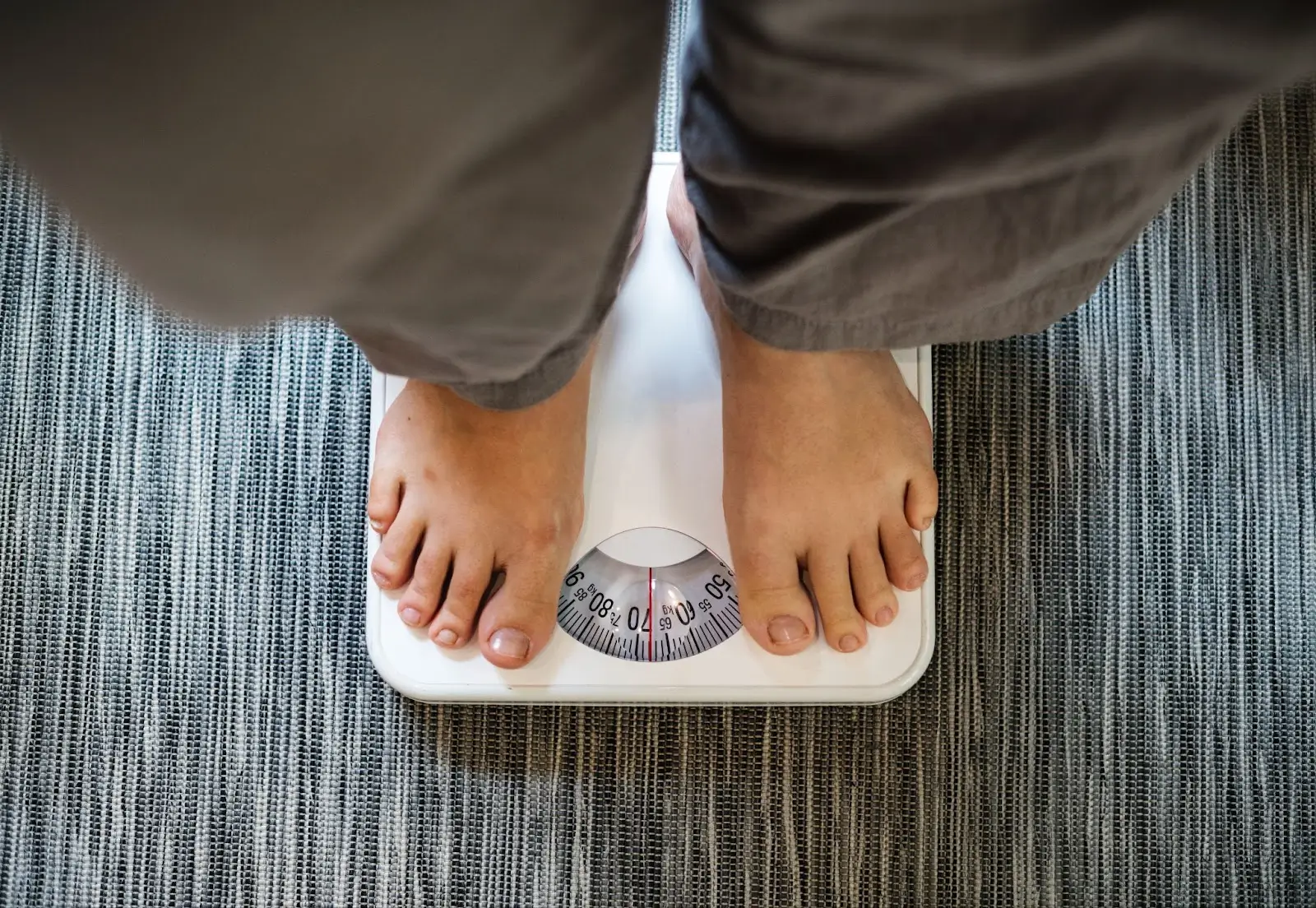
Obesity now affects over 650 million adults around the world and continues to rise. It’s not just a matter of weight—carrying excess fat increases the risk of developing type 2 diabetes, heart disease, and even certain cancers. As the demand for effective weight-loss options grows, many people are turning to medical treatments for support.
Among the newer options gaining attention is Mounjaro (tirzepatide)—an injectable medication initially approved to help manage type 2 diabetes. What makes Mounjaro unique is its dual action on GIP and GLP‑1 receptors, which appears to have a powerful impact not just on blood sugar, but also on body weight. Early studies have sparked interest in its potential as a weight-loss treatment, leading some to explore its use beyond diabetes care.
But how safe is it for this purpose? In this article, we’ll take a closer look at Mounjaro’s safety profile, its potential benefits for weight loss, possible side effects, and what both patients and healthcare providers should consider before using it for this off-label goal.
Key Takeaways
- Mounjaro (tirzepatide) is FDA-approved for type 2 diabetes, while its counterpart Zepbound® is approved for chronic weight management in adults with obesity or overweight and related health conditions.
- Some healthcare providers may prescribe Mounjaro off-label for weight loss, but this decision should be made with full awareness of the risks, benefits, and regulatory status in the patient’s region.
- Clinical trials, including the SURMOUNT study, have shown that tirzepatide can lead to substantial weight loss, with side effects that are generally mild to moderate and improve over time.
- Common side effects include nausea, vomiting, diarrhea, constipation, and reduced appetite. Serious risks like pancreatitis, gallbladder issues, and hypoglycemia require prompt medical attention and ongoing monitoring.
- Patients with a history of medullary thyroid carcinoma (MTC), MEN 2, or severe allergic reactions to tirzepatide should not use Mounjaro.
- Careful patient selection, gradual dose titration, and routine follow-ups help ensure safe and effective treatment outcomes.
- Mounjaro works best when paired with healthy lifestyle changes, offering patients a powerful new option for sustainable weight loss and improved metabolic health.
About: Doctor Medica is your trusted supplier of top-quality dermal fillers, viscosupplements, and more for your medical practice. We offer genuine products from leading brands at the lowest prices in the market. If you’re looking to order Mounjaro online for your practice, contact Doctor Medica today.
Mounjaro Regulatory Status for Weight Loss and Type 2 Diabetes

Mounjaro (tirzepatide) was officially approved by the U.S. FDA in May 2022 to help adults with type 2 diabetes manage their blood sugar levels. Since then, its weight loss potential has garnered considerable attention, both in clinical circles and among patients seeking more effective solutions.
Although Mounjaro itself is not FDA-approved for weight loss, the same active ingredient — tirzepatide — received approval under a different brand name, Zepbound, in November 2023. Zepbound is now authorized in the U.S. for chronic weight management in adults with obesity or overweight who also have at least one weight-related health condition, such as hypertension or type 2 diabetes.
In practice, some healthcare providers may prescribe Mounjaro off-label for weight loss, especially in regions where Zepbound or similar medications are not yet approved. Approval status varies globally — with countries like Canada and those in the EU either reviewing or granting approval for tirzepatide-based weight-loss therapies.
Whether prescribed for diabetes or weight management, it’s essential to follow proper medication storage guidelines, including knowing how long Mounjaro can be out of the fridge, to maintain its effectiveness.
Safety Profile: Clinical Trial Data and Real-World Evidence
The safety of tirzepatide has been explored extensively in both clinical trials and real-world settings. One of the most important studies, the SURMOUNT clinical trial, showed that participants not only experienced significant weight reduction, but also tolerated the medication fairly well over time.
Most reported side effects were gastrointestinal — including nausea, vomiting, and diarrhea — which are expected with medications that affect GLP‑1 and GIP receptors. The good news is that these symptoms are often mild to moderate and tend to improve as the body adjusts to the medication.
Outside of clinical trials, growing real-world evidence confirms these findings. Patients using tirzepatide for either diabetes or weight management are generally finding it manageable. That said, ongoing monitoring remains crucial. Even when side effects are minimal, clinicians continue to watch for rare complications and make sure the treatment is supporting long-term health goals.
Common and Serious Adverse Effects Observed with Mounjaro
Like all prescription medications, Mounjaro comes with both benefits and risks. While it offers powerful support for weight loss and blood sugar control, patients need to know what side effects might occur — and which ones require prompt medical attention.
Common Side Effects
- Nausea and Vomiting: Often occur during the dose-escalation phase, when the body is adjusting. These symptoms usually fade with time, and small dietary changes may help ease discomfort.
- Diarrhea or Constipation: Some patients notice shifts in bowel habits. Drinking plenty of water and eating fiber-rich foods can help restore balance.
- Decreased Appetite: This contributes to weight loss but may also lead to fatigue or nutrient gaps if meals become too sparse. Patients should aim for balanced, nutrient-dense choices.
Serious Risks
- Pancreatitis: Sudden, sharp abdominal pain — especially if paired with nausea or vomiting — could signal pancreatic inflammation. This requires immediate medical attention and stopping the medication.
- Gallbladder issues: Rapid weight loss can lead to gallstones, and tirzepatide may contribute indirectly. Signs include abdominal pain, fever, or yellowing of the skin/eyes (jaundice).
- Hypoglycemia: While rare in non-diabetics, this risk increases for those taking tirzepatide with insulin or sulfonylureas. Blood sugar levels should be monitored carefully if used alongside other glucose-lowering medications.
Who Should Avoid Mounjaro
Doctors do not recommend Mounjaro for individuals with:
- A personal or family history of medullary thyroid carcinoma (MTC)
- Multiple endocrine neoplasia syndrome type 2 (MEN 2)
- A known severe hypersensitivity to tirzepatide
Most side effects are manageable, especially with good communication between patient and provider. Still, knowing the warning signs of more serious complications helps keep treatment safe and effective.
Clinical Considerations: Patient Selection, Monitoring, Risk–Benefit Balance

When it comes to using Mounjaro for weight loss, there’s no one-size-fits-all approach. Healthcare professionals take several factors into account before prescribing it — with a focus on both maximizing results and minimizing risk.
Who Might Benefit Most
- Adults living with type 2 diabetes, obesity, or both, especially those who haven’t had success with lifestyle changes alone
- People seeking a medication that offers both blood sugar control and meaningful weight reduction
Monitoring and Ongoing Support
- Doctors typically schedule regular follow-ups to check in on how the body is responding — especially during the first few months
- Lab work may be used to monitor for inflammation, blood sugar trends, or early signs of adverse reactions
- Patients are educated on what to expect, how to manage common symptoms, and when to call their doctor
Balancing the Risks and Rewards
While the weight loss benefits of Mounjaro are significant — often reducing the risk of cardiovascular disease, sleep apnea, and joint pain — they come with possible side effects. A careful balance of risk and benefit is essential.
With individualized care, gradual dose adjustments, and a strong patient–provider relationship, Mounjaro can be a valuable part of a comprehensive weight management strategy.
Conclusion
Mounjaro (tirzepatide) is quickly becoming a key player in both type 2 diabetes management and the evolving world of medical weight loss. Backed by strong clinical trial results and growing real-world use, it offers patients the chance to achieve significant weight reduction — often where other methods have fallen short.
But is Mounjaro safe for weight loss? The answer is: it can be, when used under the guidance of a healthcare provider, and for the right patient. Most side effects are manageable, especially when doses are introduced gradually. That said, awareness of serious risks, close monitoring, and honest communication with a medical team are essential to making treatment both safe and effective.
As research expands and more countries consider approval for obesity treatment, Mounjaro (and its weight-loss-approved counterpart, Zepbound) could help reshape how we approach obesity-related health conditions. For now, safety comes down to informed decisions, personalized care, and choosing patients wisely.
FAQs
1. Is Mounjaro FDA-approved for weight loss?
Mounjaro has FDA approval for type 2 diabetes. However, the same active ingredient (tirzepatide) has approval under the brand name Zepbound in November 2023 for chronic weight management in adults with obesity or overweight, along with weight-related health conditions.
2. What are the most common side effects of Mounjaro?
The most frequently reported side effects include nausea, vomiting, diarrhea, constipation, and decreased appetite. These are usually temporary and often improve as the body adjusts.
3. Who should not take Mounjaro for weight loss?
People with a personal or family history of medullary thyroid carcinoma (MTC), MEN 2, or anyone with a severe allergic reaction to tirzepatide.
4. Can Mounjaro be used alongside lifestyle changes?
Yes — and it works best that way. While Mounjaro helps with weight reduction, combining it with healthy eating, physical activity, and behavioral support often leads to the most sustainable results.
References
World Health Organization: WHO. Obesity and overweight. Published May 7, 2025. https://www.who.int/news-room/fact-sheets/detail/obesity-and-overweight
How Mounjaro is helping people with obesity lose weight. Cleveland Clinic. Published October 25, 2023. https://health.clevelandclinic.org/mounjaro-for-weight-loss
National Institute of Diabetes and Digestive and Kidney Diseases. Health Risks of Overweight & Obesity. Updated 2023. https://www.niddk.nih.gov/health-information/weight-management/adult-overweight-obesity/health-risks
Related Articles
Joanna Carr
Intraline Filler Longevity – How Long Does It Last?
Find out how long Intraline dermal fillers last, including factors that influence longevity, product variants, and tips for maintaining optimal result...
Joanna Carr
Comprehensive Product Review: Dermalax Deep Plus Hyaluronic Acid Filler
This article provides an in-depth analysis and review of Dermalax Deep Plus hyaluronic acid filler. It covers aspects such as effectiveness and lengev...
Joanna Carr
Orthovisc Vs. Durolane – A Comprehensive Comparison
Orthovisc and Durolane are hyaluronic acid-based injections used to manage degenerative joint disease. Read a comparison here.


